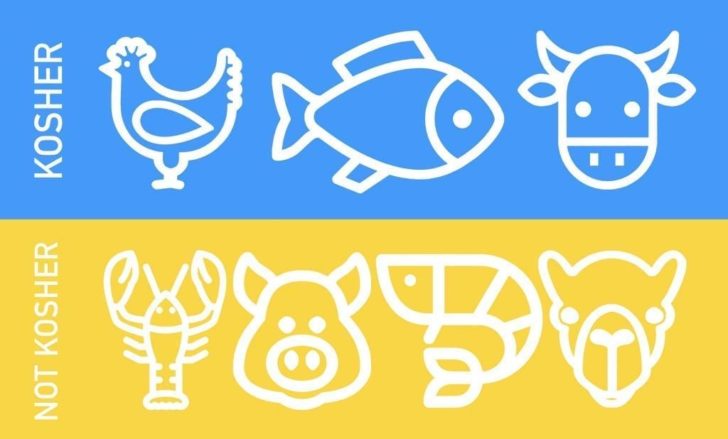Hey there! I’ve been researching Jewish dietary laws lately, and let me tell you – the whole shrimp situation is pretty interesting. As someone who loves seafood, I totally get why people ask about this. Let’s dive into why these tasty crustaceans are off the menu for those keeping kosher.
The Quick Answer
Shrimp isn’t kosher because it doesn’t meet the basic requirements set by Jewish dietary laws According to the Torah, aquatic animals need both fins AND scales to be considered kosher Our little shrimpy friends? They’ve got neither!
The Biblical Source: It’s Pretty Clear Cut
The Torah (specifically in Leviticus and Deuteronomy) lays it out super clearly:
- Leviticus 11:9-12 states that water creatures must have fins and scales to be kosher
- If it’s swimming around without both features? Sorry, it’s not allowed!
- This isn’t just some random rule – it’s considered a divine commandment
Breaking It Down: Why No Shellfish?
Let’s make this super simple:
Kosher Fish Must Have:
- Fins ✓
- Scales ✓
Shrimp Has
- Fins ✗
- Scales ✗
Well that was easy! But wait there’s more…
Common Questions People Ask Me
“But what about imitation shrimp?”
Now this is where it gets interesting! Imitation shrimp CAN be kosher if:
- It’s made from kosher fish
- Produced under kosher supervision
- Has proper kosher certification
“What if I accidentally eat shrimp?”
Don’t panic! While it’s not ideal:
- Accidental consumption isn’t considered a major sin
- Jewish law understands mistakes happen
- Just try to be more careful next time
The Bigger Picture
This isn’t just about shrimp – it’s part of a whole system called Kashrut. These dietary laws include:
- Separating meat and dairy
- Only eating certain parts of permitted animals
- Specific preparation methods
Real Talk: Why These Rules Matter
I think it’s fascinating how these ancient laws still impact millions today. For observant Jews, keeping kosher is:
- A daily reminder of their faith
- A way to practice mindful eating
- Part of their cultural identity
Some Practical Tips If You’re Going Kosher
If you’re thinking about keeping kosher, here’s what worked for me:
- Start gradually
- Learn to read kosher certificates
- Find substitutes for your favorite non-kosher foods
- Connect with others who keep kosher
What About Other Seafood?
Just so you know, these rules affect more than just shrimp. Here’s a quick list:
Not Kosher:
- Lobster
- Crab
- Oysters
- Clams
- Squid
Kosher:
- Tuna
- Salmon
- Tilapia
- Cod
- Most regular fish with scales
Cultural Impact
Y’know, it’s pretty amazing how this dietary law has influenced Jewish cuisine worldwide. Communities have developed awesome kosher alternatives and recipes that are just as tasty!
The Bottom Line
So there ya have it! The whole shrimp-isn’t-kosher thing isn’t complicated – it’s just about following those two simple rules: fins and scales. While some Jewish movements might be more lenient about dietary laws in general, this particular rule about seafood is pretty universally accepted.
Whether you keep kosher or not, understanding these traditions helps us appreciate the rich diversity of food cultures around us. And hey, if you’re looking for kosher seafood options, there are plenty of delicious fish that DO make the cut!
Remember, these rules aren’t meant to be a burden – they’re part of a beautiful tradition that’s helped keep Jewish identity strong for thousands of years. Pretty cool, right?
Would you like me to explain anything else about kosher laws or suggest some kosher seafood alternatives? Drop a comment below!
Note: While I’ve done my research, it’s always best to consult with your local rabbi for specific questions about keeping kosher.
#Jewish #KosherFood #JewishTradition #Kashrut #FoodLaws

What Are the Rules of Kosher Cuisine?
Kosher cuisine is based on a complex set of rules that define which foods are permitted and which are prohibited. The animals that can be eaten must meet certain criteria. For instance, only ruminants with cloven hooves are considered kosher. This means that cattle, sheep, and goats are permitted, while pigs, rabbits, and horses are forbidden.
Additionally, even permissible animals must be slaughtered in a specific way, known as shechita. This process, carried out by a kosher butcher called a shochet, ensures that the animal suffers as little as possible and that all blood is completely drained, since the consumption of blood is forbidden by Jewish law.
Regarding fish, only those with fins and scales are considered kosher. This means that fish like salmon, tuna, and trout are allowed, while all seafood, including crustaceans like shrimp, lobsters, and mussels, are prohibited.
Why Don’t Jews Eat Meat and Milk Together?
The prohibition of mixing meat and milk is a cornerstone of kosher cuisine and stems directly from the Torah. It is written in three different passages, “Do not cook a kid in its mother’s milk” (Exodus 2319, Exodus 3426, Deuteronomy 14:21). This precept, which might seem limited to the preparation of a specific dish, has been interpreted by rabbis as a broader prohibition against consuming any mammalian meat and milk together.
Rabbinic interpretation has expanded this concept to prevent any type of mixing between meat and dairy, as this combination is considered to lack compassion and respect for animal life. The idea of cooking an animal’s meat in the milk meant to nourish it symbolizes, for Jewish scholars, an act of cruelty. For this reason, kosher rules clearly establish the separation between meat and dairy, not only during meal preparation and consumption but also in the digestion times between the two food types.
According to Jewish tradition, after eating meat, one must wait a period of time before consuming any dairy product. This waiting time varies by community: Sephardic Jews usually wait six hours, while some Ashkenazi Jews wait from three to six hours. The principle behind this wait is to ensure that all the meat has been completely digested before introducing milk or dairy products.
